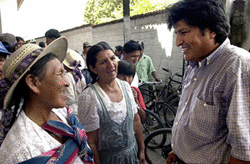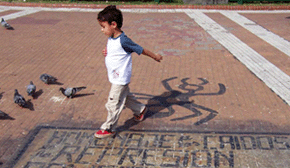
Protesters get FBI terrorism treatment
COLORADO SPRINGS – Documents obtained under the Freedom of Information Act (FOIA) confirm what many activists and civil libertarians have been claiming for several years – that the FBI’s Joint Terrorism Task Forces (JTTF) collect information on nonviolent protest activities and consider them part of domestic terrorism investigations.
The documents, discovered due to a request by the American Civil Liberties Union Foundation of Colorado, show that the names and license plate numbers of about 30 people who protested in



